 News
News
Clifton Suspension Bridge Harp
The Clifton Suspension Bridge Harp event a great success on Friday at the Waterfront – lots of coverage via Points West, BBC Radio 4 Today programme and the Evening Post. Read more about the event and the project behind it here: Clifton Suspension Bridge Harp
Data visualisation challenge now open!
Exploring complex datasets using VR / 360 data visualisation. Expression of interest deadline 15 December 2017. Are you a researcher producing or have produced complex datasets and have interesting research questions that may be investigated or explained using data visualisation on 360 and/or VR? Or are you a professional in data visualisation, VR, AR, VFX, 360, a content developer, gaming developer or producer and are keen to work with researchers to develop a VR and/or 360 data visualisation to be showcased at the Bristol Data Dome? If so, get in touch or complete an expression of interest form now – see Data visualisation challenge for more details.
Training page now live on JGI website
For links to a variety of training courses available to people interested in the field of data science and beyond, please see our new pages on the JGI website.

Why we need the Data Ethics Canvas
To mark the launch of the Open Data Institute‘s Data Ethics Canvas, Amanda Smith and Peter Wells write in this blog, sharing the thought behind it, why it is important and how they hope it will be used by organisations and sectors. Data is emerging as a vital and virtual form of infrastructure that we rely on. This creates the opportunity to build better societies but also the risk that we lose trust, not just in data or facts but also in businesses and governments. One of the ways that we can address this is to improve data ethics. The choices made about what data is collected and how it is used should not be unfair, discriminatory or deceptive. The new Open data Institute (ODI) paper and tool will help you learn how to do this.
Funding Opportunities

JGI Seed corn funding call now open! Closing date 17 November 2017
The JGI’s second round of research funding is now open to applicants. Please take a look at previous successfully funded projects – JGI funded projects. The primary aim of this scheme is to support activities that will foster interdisciplinary research in the area of data-intensive research and our priority work streams address these themes:
- data driven solutions to societal challenges
- data visualisation and materiality
- developing communities through data
- addressing data as a shared knowledge base (information commons).
More information and the application form can be found on the JGI Funding page.
GW4 Initiator and Accelerator Fund. Closing date 31 October 2017
Initiator fund up to £20K. Accelerator fund £20-75K. The panel wishes to particularly encourage applications with a focus on Global Challenges Research Fund ad Industrial Challenge Strategy Fund.
Policy Bristol – funding call for Support Scheme. Closing date 1 November 2017
Apply for funding to influence, inform and engage with policy. This scheme helps University of Bristol academics engage in activities with policy-making stakeholders. For more information please see intranet page – PolicyBristol Support Scheme 2017/2018
EPSRC UKRI Innovation Fellowships funding call. Closing date 9 November 2017
Up to £38.9 million is available for this call. EPSRC expects to fund 65-85 Fellows. Additional funding of up to £1.6 million from AHRC, a minimum of £1 million from BBSRC and up to £0.4 million from ESRC will be available for research at specified interfaces.
Tools and Resources Development Fund call. Closing date 5 December 2017
The aim of the call is to support the early-stage development of cutting edge, high-impact research technologies essential to sustaining the vibrancy of life sciences discovery research in the UK. The 2017 call specifically encourages proposals relevant to Technology Touching Life (TTL), a BBSRC, EPSRC and MRC joint initiative to foster interdisciplinary research into innovative and potentially disruptive technological capabilities that will drive world-leading basic discovery research in the life sciences (both biological and biomedical). Applications should be between six and eighteen months duration and are not expected to exceed £150,000 (£187,000 fEC).
More funding opportunities
A list of current funding opportunities is available on the Research Development website (University of Bristol people only)

The growing ubiquity of algorithms in society: implications, impacts and innovations 30 – 31 October 2017 The Royal Society, London
Scientific discussion meeting. The usage of algorithms and analytics in society is exploding: from machine learning recommender systems in commerce, to credit scoring methods outside of standard regulatory practice and self-driving cars. The rapid adoption of new technology has the potential to greatly improve citizens’ experiences, but also poses a number of new challenges. This meeting will highlight opportunities and challenges in this rapidly changing landscape, bringing legal and ethics experts together with technologists to discuss implications, impacts and innovations.
British Library Labs Symposium. 30 October 2017 @ 09.30 – 17.00. The British Library, London
The Symposium is an annual networking event and awards ceremony showcasing innovative projects which have used the British Library’s digital collections and data over the past year.
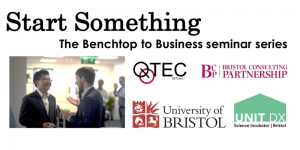
Start Something Tuesday 31 October @ 17.00 Unit DX
QTEC is running a series of 8 seminar and networking events called Start Something for postgraduates aimed at providing an overview of how to become an entrepreneur. The idea is to get people in a room who might be interested in getting something off the ground along with a mixture of experienced entrepreneurs, the professional and business community and people who will be able to help them. This first in the series will be a panel session entitled ‘Heart and Mind: Entrepreneurial Motivation’
Big data and the language industry workshop. 2 November 2017 @ 15.00 – 16.00 Room G108, 21 Woodland Road, University of Bristol
The application of big data in the language industry. For more information please see: Big Data Workshop 2 Nov 2017
UK-HDAN Workshop on health data analytics 3 November 2017 Alan Turing Institute, London
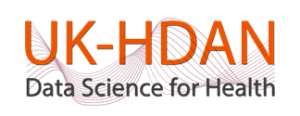
The UK Health Data Analytics Network (UK-HDAN) are hosting a one day participatory workshop at the Alan Turing Institute to bring together health informaticians and data science methodologists. The aim is to explore, in some depth, the methodological challenges posed by health data, building on the UK-HDAN Research Roadmap, a living document, which provides a framework of Healthcare Opportunities and Data Science Challenges. The intention is that, through sharing insights and experience, participants will identify new opportunities for research and collaboration. The meeting will also contribute to further development of the Roadmap.
Opportunity for dialogue with the Royal Statistical Society Friday 17 November 2017 @ 15.00 – 17.00, Room SM3, School of Mathematics, University Walk, Bristol
Presentation and discussion with Hetan Shah, CEO Royal Statistical Society (RSS). Hetan will give a short presentation that explains the varied work of the Royal Statistical Society. After the presentation the floor will be open and a discussion held about what people see at the key issues which they think that the RSS should be taking forward. Hetan is particularly interested to hear about the range of statistical work that is carried out in Bristol and views from the community about what the RSS should be doing. Members of the RSS are encourage to attend and participate and non-members, who are interested are more then welcome to attend.
Famous for 3 minutes Thursday 18 January 2018 @11.00 – 14.00 (lunch provided) Stephenson Room, Richmond Building, University of Bristol
Looking to meet academics from other fields of research, find out about their latest passions and discoveries and develop new research partnerships? ‘Famous for three minutes’ is a popular, fast-paced networking event for academics right across the University of Bristol. With just three minutes and one slide each to communicate their research, attendees get an opportunity to see a huge variety of ideas, models, theories and findings related to data science. Come and join us!

Changing perception: Hearing, psychoacoustics and ICT workshop 6 – 7 February 2018
EPSRC is holding a two day workshop to explore collaborative research opportunities between psychoacoustics, hearing and engineering (specifically within the information and communications technologies). EPSRC are including sound (including music, but also other sounds, natural and artificial) and the intersection of sound with computer science. This includes the development of algorithms, signal processing techniques, user interfaces or information systems to support music or sound based interactions between humans and computers, between performer and audience, as well as applications in healthcare (assistive technology) and robotics. EPSRC are also including basic studies of the biology and psychology of human hearing where the purpose of the research is to underpin design and implementation of human-computer interfaces and other aspects of ICT design.
The workshop will be multidisciplinary, bringing together researchers from varied domains, psychology to computer science. Please express your interest by 20 November 2017.
Famous for 3 minutes Wednesday 14 February 2018 @ 11.00 – 14.00 (lunch provided) Beacon House, University of Bristol
Our second networking event of 2018 – looking to meet academics from other fields of research, find out about their latest passions and discoveries and develop new research partnerships? ‘Famous for three minutes’ is a popular, fast-paced networking event for academics right across the University of Bristol. With just three minutes and one slide each to communicate their research, attendees get an opportunity to see a huge variety of ideas, models, theories and findings related to data science. Come and join us!
Jean Golding Institute Showcase 2018 Tuesday 3 July 2018 Wills Memorial Building
Please save the date for the JGI Showcase event.
For up to the minute info about events please see the JGI Events page
Courses
Understanding the General Data Protection Regulation. Free course via Future Learn starts 13 November 2017
Get to grips with the General Data protection Regulation and take the first steps to ensuring that your organisation is compliant. Future Learn is offering a free course which covers general principles and basic concepts of the GDPR, key actors under the GDPR and their role, rights of data subjects, obligations of data controllers and processors and law compliance measures, enforcement and compliance mechanisms and liabilities and sanctions.
Public Engagement
Support sixth form students at the Extended Project Qualifications Mentoring Fair 15 November 13.45 – 15.00
The University supports local sixth form students (Age 16-18) completing the Extended Project Qualification, where students write a self-motivated research project around a topic of their choice. The mentoring fair is an opportunity for students to spend an hour discussing their projects and receiving advice from researchers who work in similar areas. We are looking for researchers of any career stage to be mentors for this one-off session. You will be matched with students according to topic and no previous experience of working with schools is needed. A training session will be provided with the public engagement team on Wednesday 1 November 2017 @ 15.00 – 16.30
For more information and to participate please get in touch with Public Engagement Associate ellie.cripps@bristol.ac.uk
Competitions
Data visualisation challenge now open! Expression of interest deadline 15 December 2017
Exploring complex datasets using VR / 360 data visualisation. Are you a researcher producing or have produced complex datasets and have interesting research questions that may be investigated or explained using data visualisation on 360 and/or VR? Or are you a professional in data visualisation, VR, AR, VFX, 360, a content developer, gaming developer or producer and are keen to work with researchers to develop a VR and/or 360 data visualisation to be showcased at the Bristol Data Dome? If so, get in touch or complete an expression of interest form now – see Data visualisation challenge for more details.
JGI Community
To ensure the JGI community is profiled on the JGI website and to build the profile of the JGI as a whole to benefit it’s members, please take a moment to:
- email pure-support@bristol.ac.uk asking to be affiliated with the Jean Golding Institute
- Add @JGIBristol on your twitter profile
- Add ‘Jean Golding’ as a structured keyword on PURE for relevant publications to the data science and data-intensive research community (these publications will then appear on our Publications page for anyone interested in the field to explore and offer opportunities for collaboration with teams in other disciplines)
Keep in touch
We are always happy to hear from you!
Would you like your events publicised by the JGI? Do you have interesting datasets that you would like to share/promote? Have any queries or would like to get involved? Please contact us jgi-admin@bristol.ac.uk
Follow us on Twitter @JGIBristol
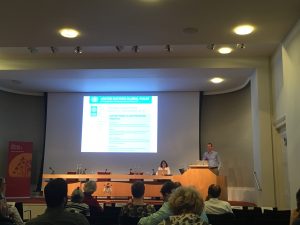










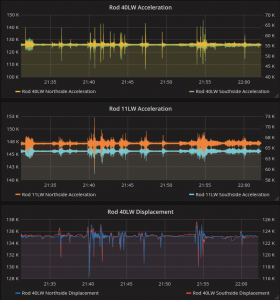
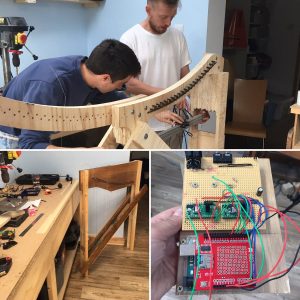
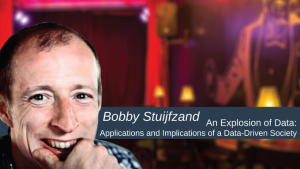
 Tuesday 19 September @ 13.00 – 16.30 Armada House, Telephone Avenue, Bristol BS1 4BQ
Tuesday 19 September @ 13.00 – 16.30 Armada House, Telephone Avenue, Bristol BS1 4BQ
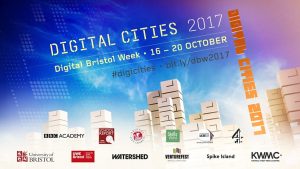 ber 2017 @ 17.00 – 19.00 The Hub, Unit 5-6, 1 Canon’s Road, Bristol, BS1 5UH
ber 2017 @ 17.00 – 19.00 The Hub, Unit 5-6, 1 Canon’s Road, Bristol, BS1 5UH